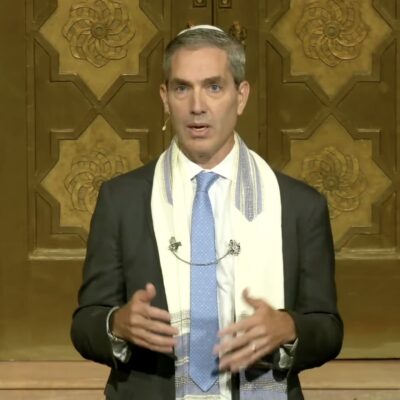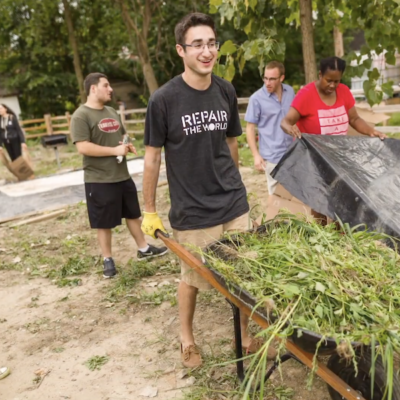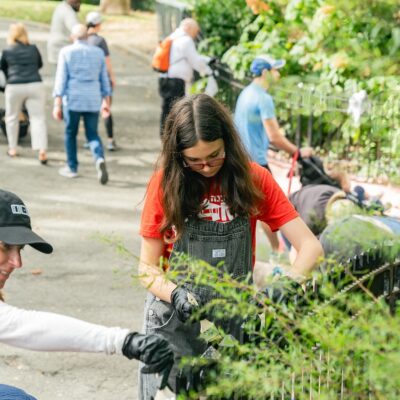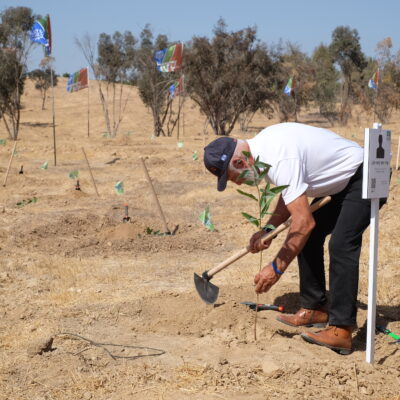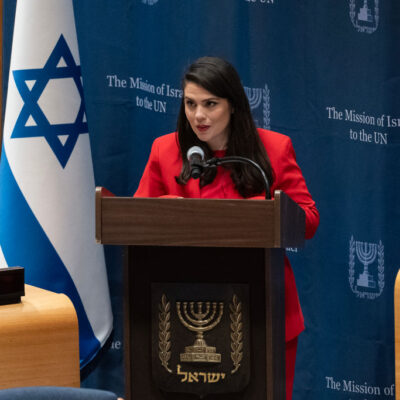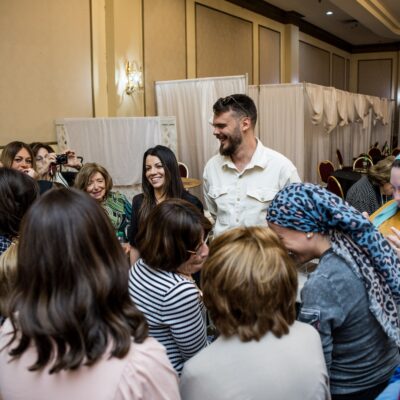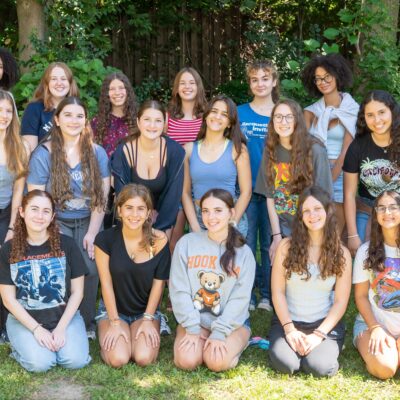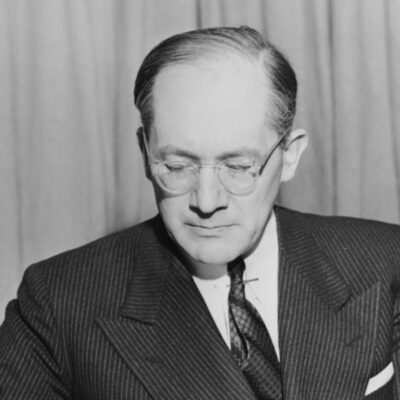Opinion
UNUSAL APPROACH
Funding ‘Gangsters vs. Nazis’: A journey
If you had told me a few years ago that after directing buzzy documentary films about billionaire activist investor Carl Icahn (the Emmy-nominated “Icahn: The Restless Billionaire” for HBO) and stage and screen legend Liza Minnelli (“Liza: A Truly Terrific Absolutely True Story,” now in theaters), my next film would be about gangsters and Nazis — and that instead of selling it directly to a network or streamer like we usually do, that we’d fund it independently through donations — I’d have said you were telling a bubbe meise.
It all started with a best-selling book: Gangsters vs. Nazis: How Jewish Gangsters Battled Nazis in Wartime America. It tells the riveting true story of how, in the lead-up to World War II, Brooklyn Judge Nathan D. Perlman, alarmed by the rise of the German-American Bund (i.e. American Nazis), built a network of Jewish gangsters to “break up” Nazi meetings and “make it dangerous to be a Nazi in America.” His first call? Meyer Lansky, notorious leader of Murder Incorporated. What followed was an incredible saga of now-forgotten history: brutal confrontations between Jewish gangsters and American Nazis, spreading from New York to L.A. and from Newark to Chicago.

Director Bruce David Klein on set of “Gangsters vs Nazis” Atlas Media Corp
As soon as I read it, I knew I had to option the rights.
Beyond the exciting action, the story captures the rising tide of antisemitism in the 1930s — and not just the Bund, but influential figures like Charles Lindbergh, Henry Ford and Father Coughlin and their very public Jew-hatred. As if that wasn’t enough, Nazi groups openly marched, rallied and attended summer camps like Camp Siegfried on Long Island that, among other important skills, taught Nazi saluting. What struck me was how these events framed the age-old dilemma that has haunted Jews for centuries: When faced with hatred, do we fight back or keep our heads down? And if we do fight, what’s the morally “acceptable” way to do it?
Given current events, these questions are of course more urgent than ever. That’s why “Gangsters vs. Nazis” became an intensely personal passion project. And that’s why I decided to skip the usual pitch to networks, maintain control of the narrative, and fund the film independently via 501(c)(3) donations.
It wasn’t an easy decision. We had never exactly financed a film this way. Usually, we simply pitch our ideas to networks and streamers until we get a “greenlight” from one of them. What did we know about the best way to communicate the film’s importance to donors? Or how to even meet donors in the first place? Early on, we made plenty of mistakes, assuming people would just hear the story and part with their money. We quickly learned otherwise. But what we did learn was transformative:
The importance of putting our money where our mouths are: Atlas Media Corp has built a reputation for making commercial content that grabs audiences; we’ve been doing it for 30-plus years. Still, potential donors wanted to know what the film would “look like.” To answer them, we fell back on our core competency — visual storytelling — and decided to invest $35,000 of our own money to shoot cinematic interviews and specialty footage and then edit a trailer that brought the story to life. The trailer worked like magic, opening doors to donors and professional fundraisers alike.
The importance of professional fundraisers: We naively thought our storytelling skills would carry us through. Wrong!
Once we brought in professional fundraisers, especially those familiar with Jewish causes and film philanthropy, they taught us how to use a reputable fiscal sponsor as our nonprofit 501c3, how to structure donor recognition tiers and how to build an impact campaign. Their expertise unlocked access — not only a wider range of donors, but also our first real commitments.
The importance of grants: We are used to getting a single big check from networks like HBO or Netflix, so we were skeptical about piecing together smaller grants from multiple foundations. But once we dove in, we were amazed by the dedication of those running grant programs. They didn’t just cut checks — they believed in our mission, became allies in our fight against antisemitism and cheerleaders for our film. One grant alone brought in $100,000 from the Conference on Jewish Material Claims Against Germany (Claims Conference) as part of their incredible support of Shoah education and documentation.
The double-edged sword of current events: After Oct. 7, we paused fundraising; but as condemnation of Israel’s response in Gaza grew, we realized the film’s themes were more relevant than ever. It wasn’t just history repeating — it was happening right now. We reframed our messaging to reflect this urgency, and many donors responded, appreciating how the film connected past and present struggles — and how that old Jewish dilemma of the “proper” way to fight back against hate and antisemitism was now being debated nightly on newscasts across the world. We wanted our say.
So where are we now? I’m thrilled to announce that the film is more than 50% funded, and we’re back deep into production and on schedule to complete the film for premiere next year. We continue to meet with donors and work closely with fundraisers to secure the rest. Slowly but surely, we’re bringing this gripping story to life — one that not only entertains but challenges us to confront history’s tough moral questions. Best of all, we have learned a lot, and although this is our first philanthropically funded film, based on our promising journey so far, I suspect it will not be our last.
Bruce David Klein is the executive producer and director at Atlas Media Corp.

 Add EJP on Google
Add EJP on Google